Function Auction Activity
This blog post contains Amazon affiliate links. As an Amazon Associate, I earn a small commission from qualifying purchases.
One of my favorite activities for introducing the concept of a function in Algebra 1 is to host a Function Auction. The first year I did this, I threw the activity together at the last minute.
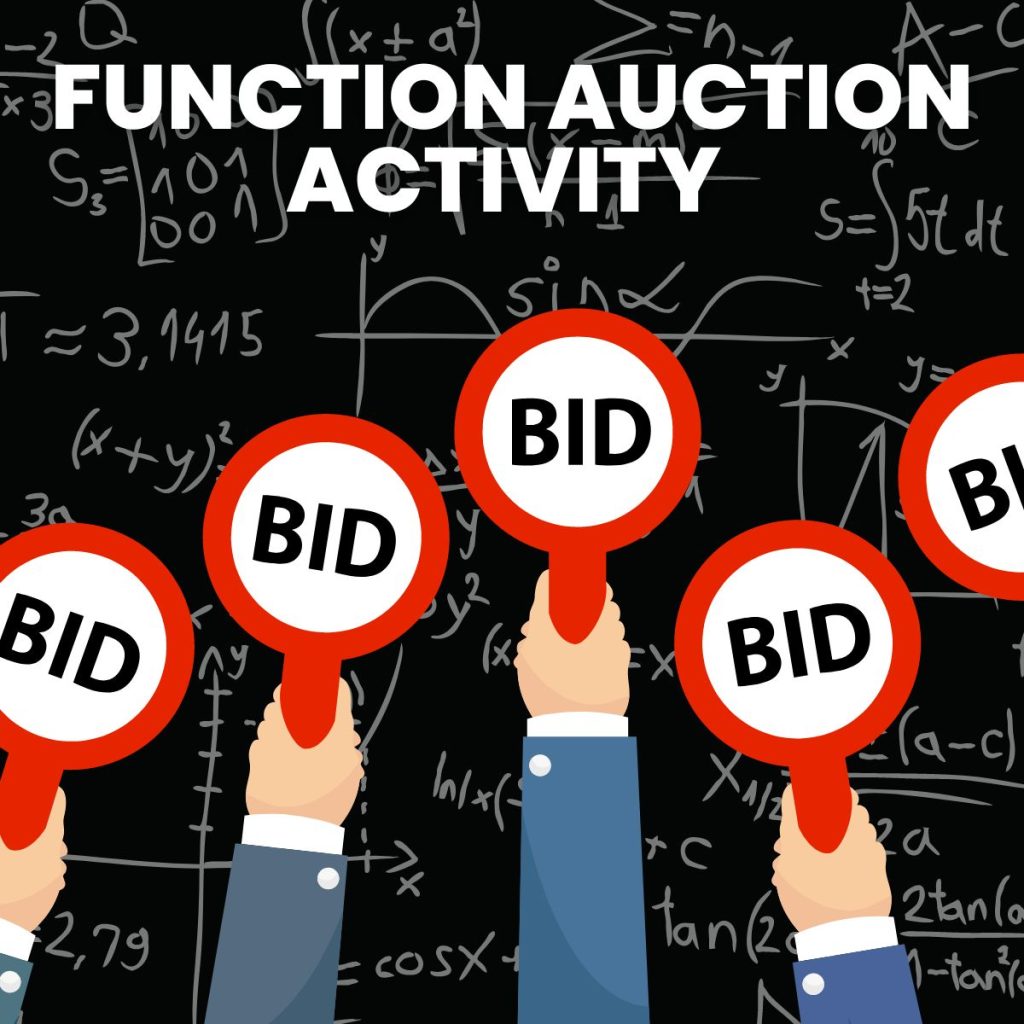
I grabbed a random function/not a function worksheet off of the Internet and stapled some colored paper on a ruler to make auction paddles. Paint stir sticks also work really well for making auction paddles.
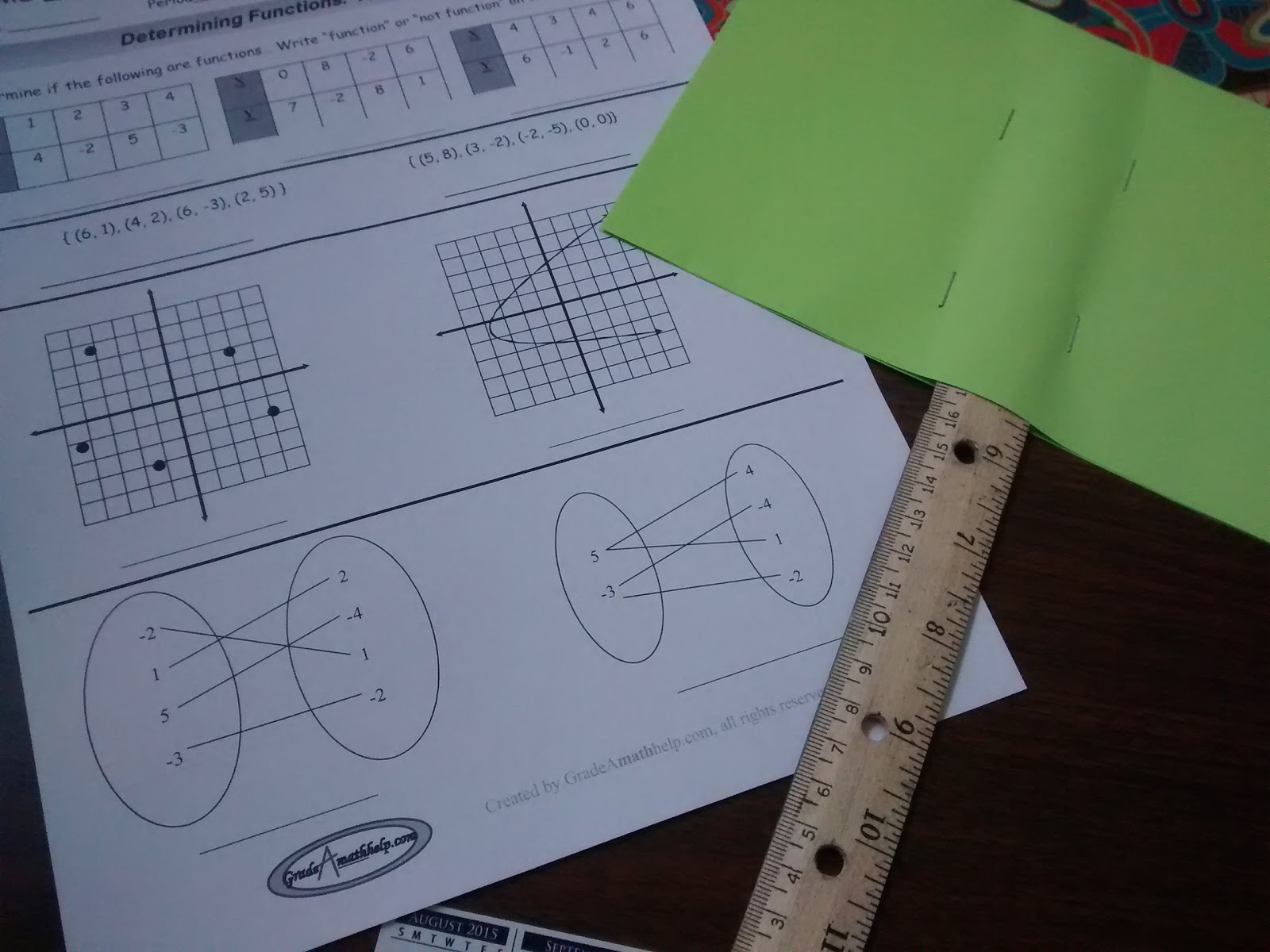
It worked so well, that I decided to create my own Function Auction worksheet.
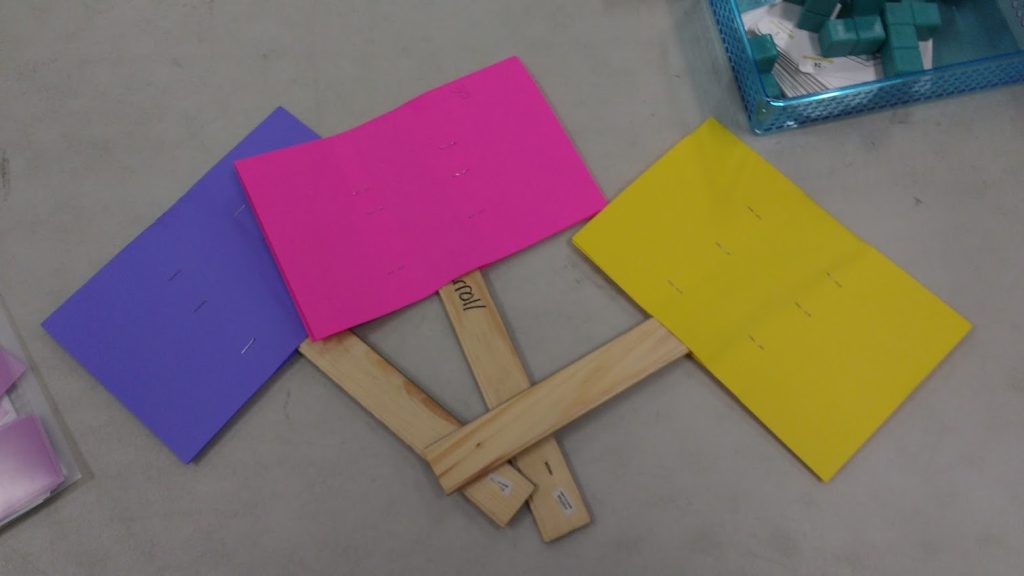
How does a Function Auction work?
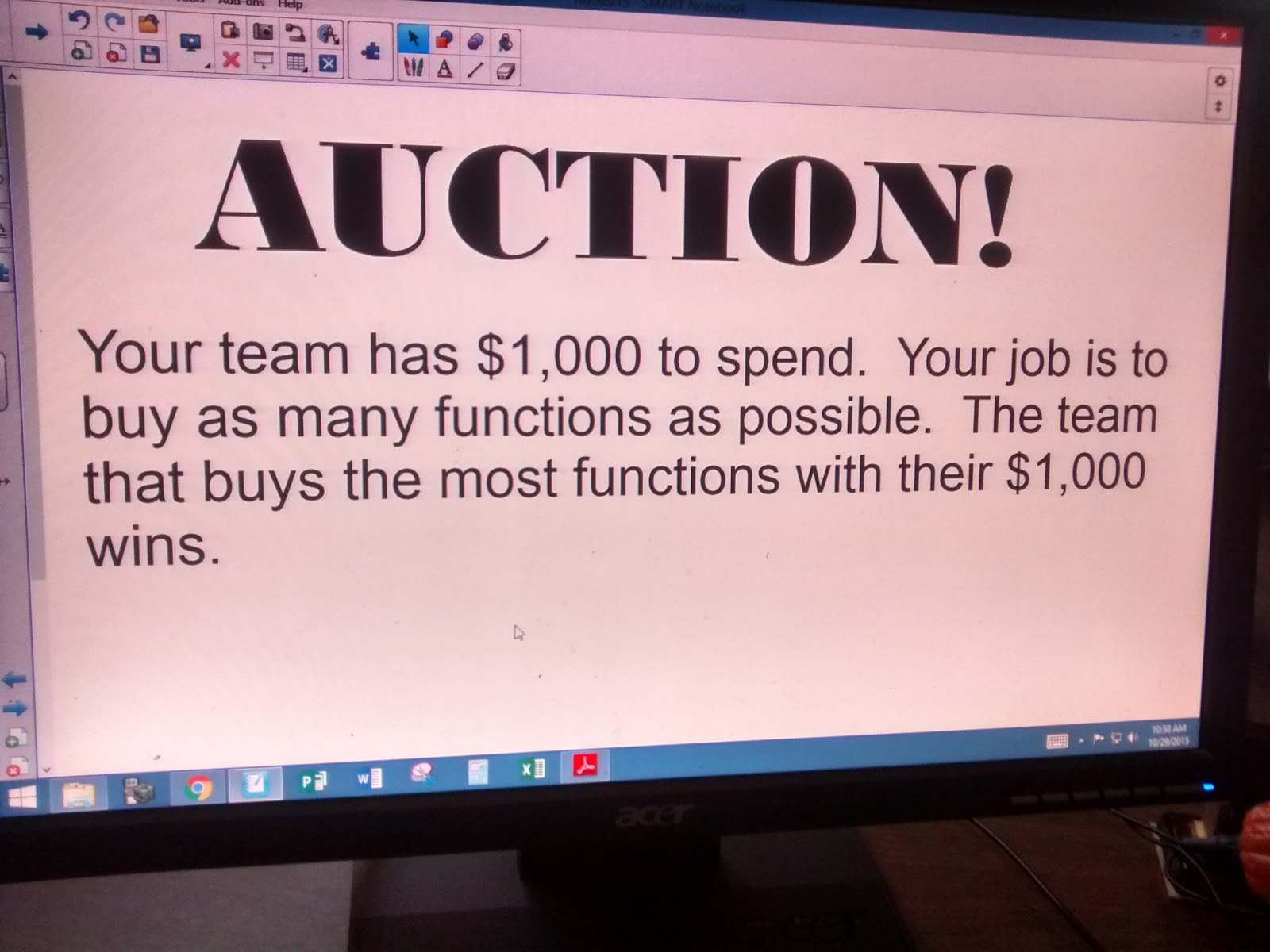
Teams are given $1,000 to spend. (I use Monopoly money. It’s not actual Monopoly money, but I found some clipart online that looks like it. Several teachers on twitter who have done this activity have created their own fake money with their faces on it. How fun!)
To start off the activity, teams are given exactly five minutes to look over the auction catalog before bidding begins. I caution students to use this time wisely.
I prefer to give my students the “auction catalog” inside of a dry erase pocket.
MATH = LOVE RECOMMENDS…
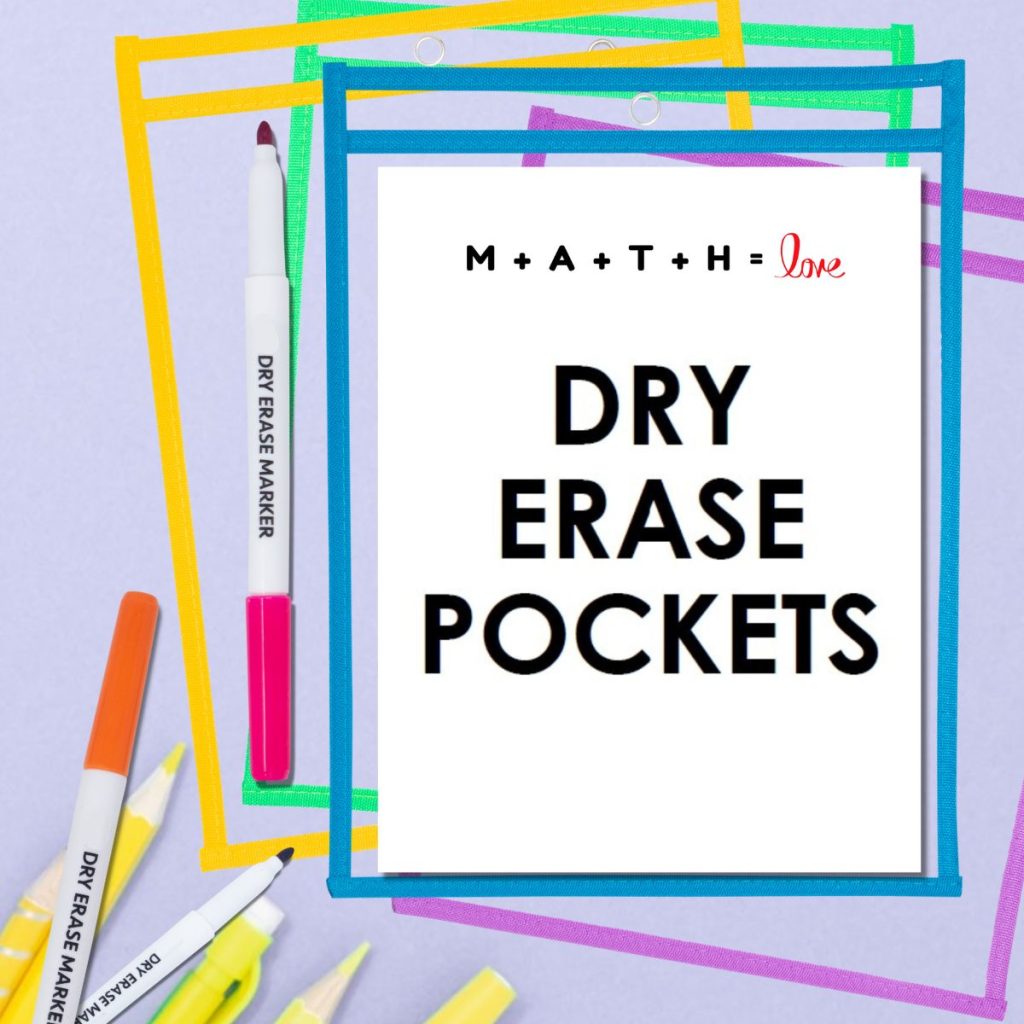
I cannot imagine teaching math without my dry erase pockets! They instantly make any activity more engaging and save me countless hours at the copy machine since I can use the same class sets of copies year after year.
Here are my current go-to recommendations:
If you don’t have a classroom set of dry erase pockets, you could also use heavy duty sheet protectors. But, I highly recommend investing in a classroom set of the pockets since they are so much more durable.
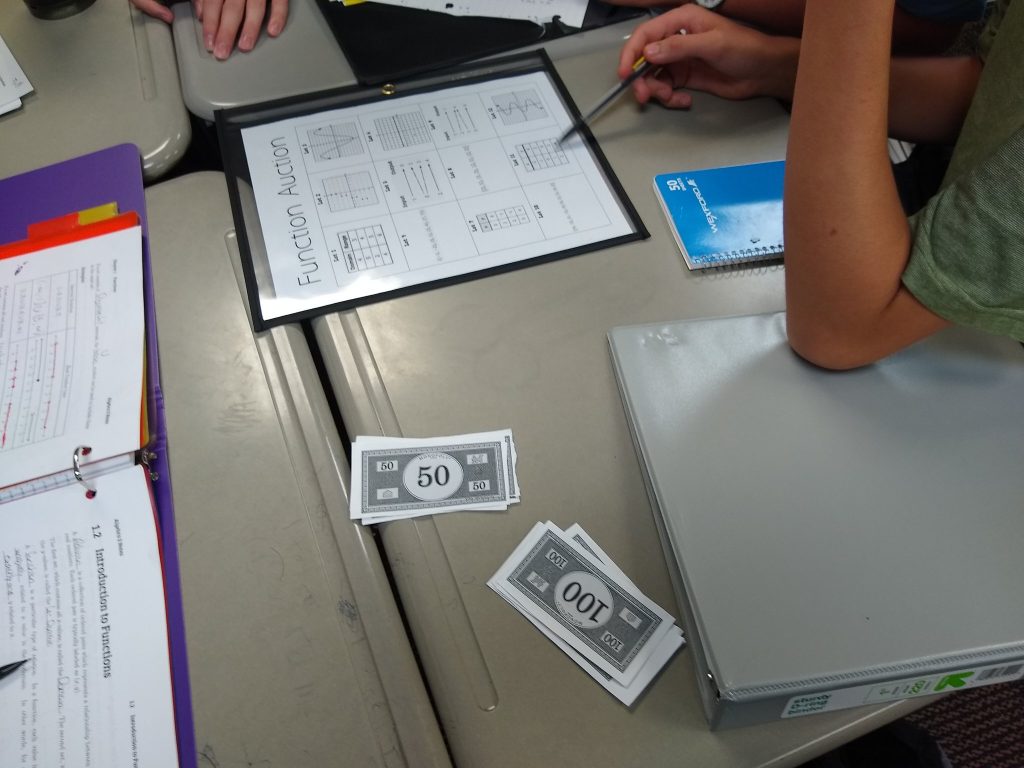
Lots are auctioned off in order, beginning with Lot 1.
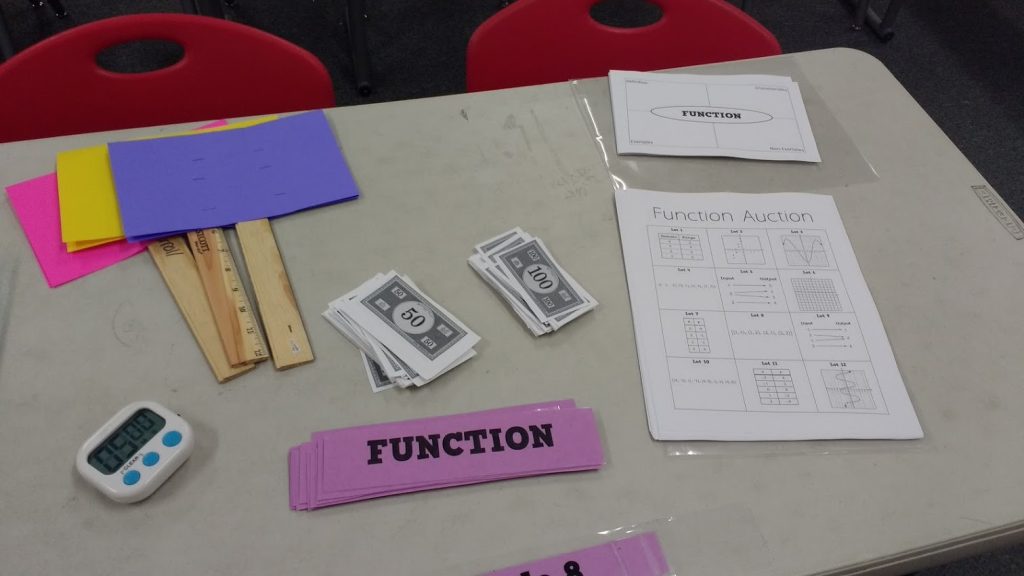
The minimum opening bid for each lot is $50.
The bid must be raised in $50 increments.
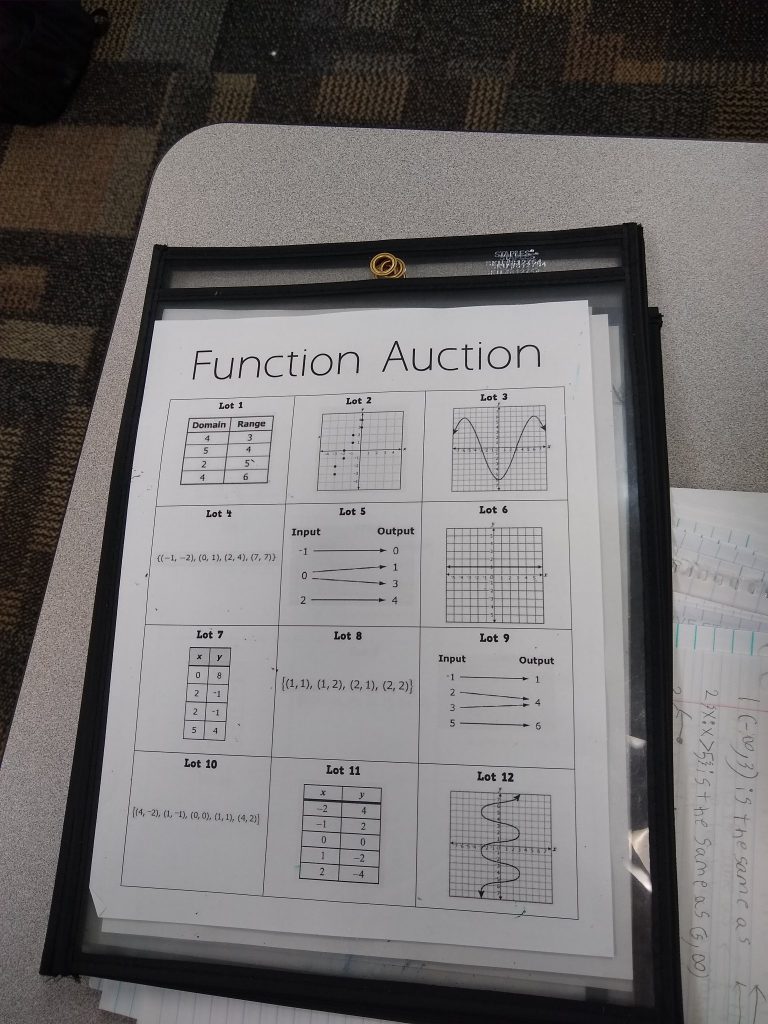
After each lot is auctioned off to the highest bidder, the class will discuss whether it was or was not a function and why.
At the end of the auction, the group that has purchased the most functions wins.
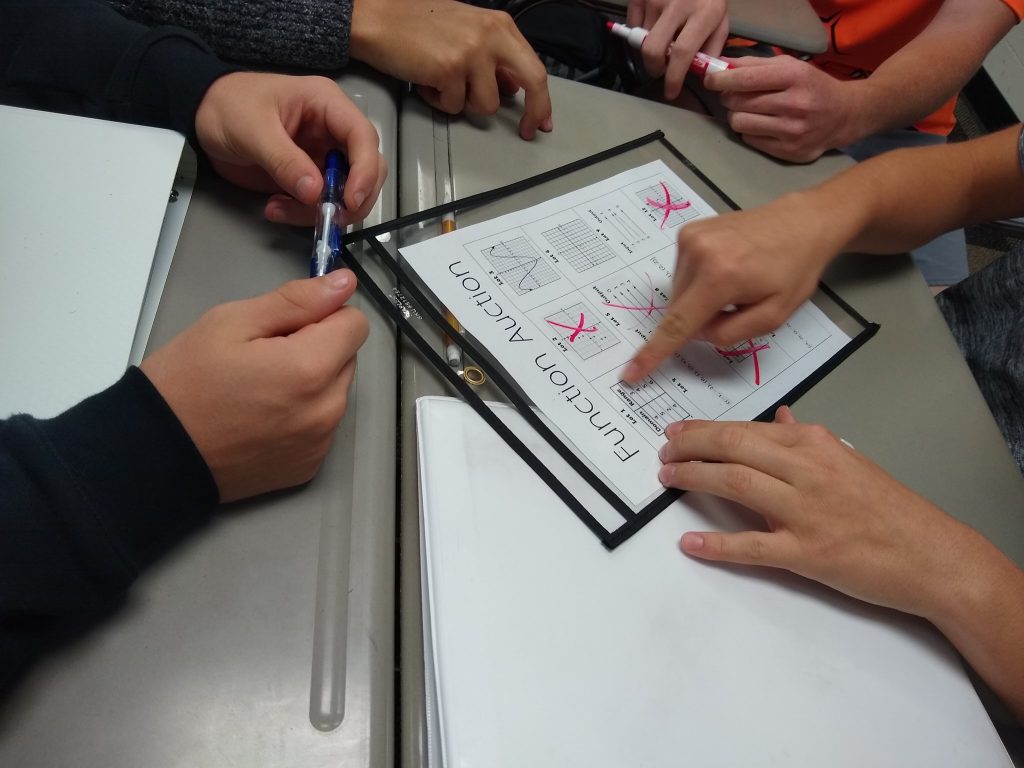
If two or more groups have purchased the same number of functions, the group with the most money left wins.
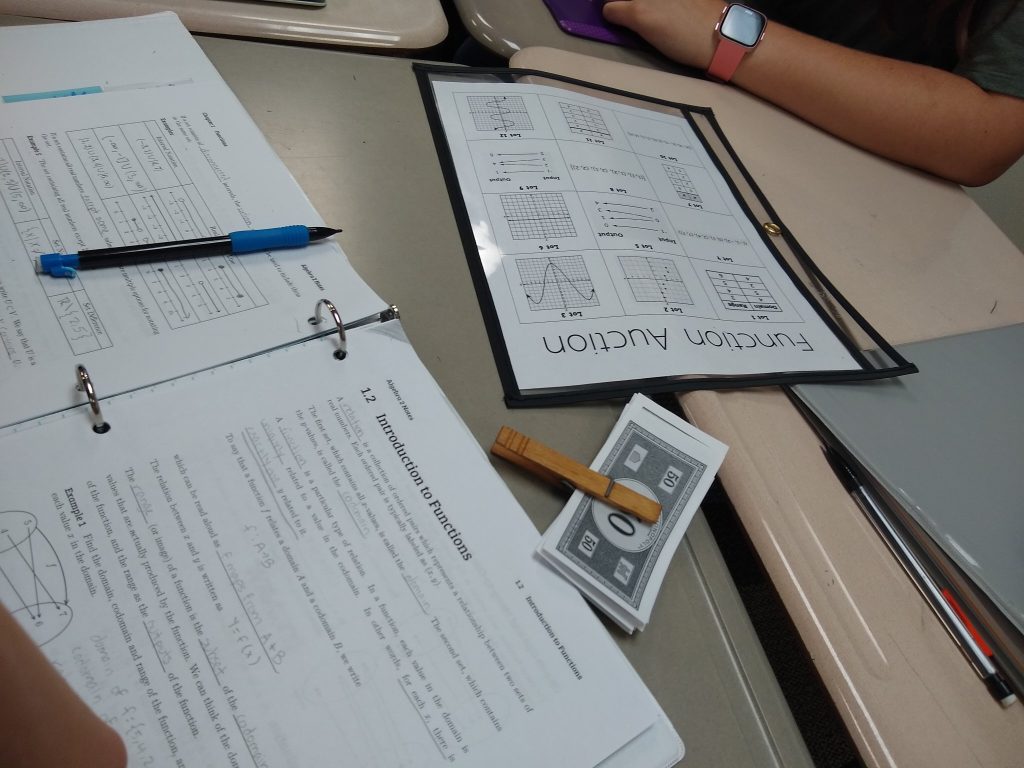
One year, I made laminated cards that said “Function” that I gave to each winning team that purchased a function.
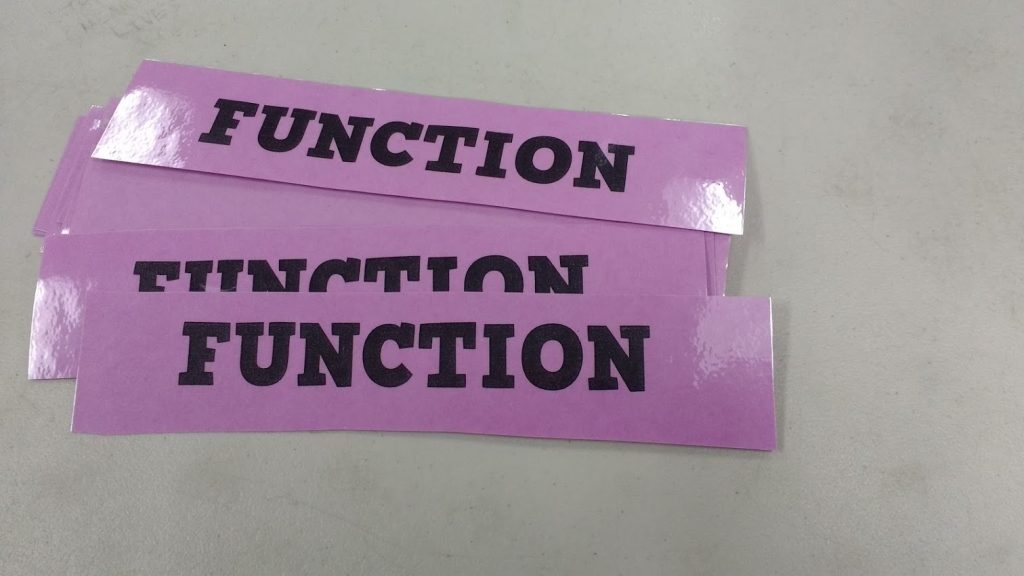
This made it much easier to determine the winner at the end.
MATH = LOVE RECOMMENDS…

A laminator is a MUST-HAVE for me as a math teacher! I spent my first six years as a teacher at a school with a broken laminator, so I had to find a way to laminate things myself.
I’ve had several laminators over the years. I currently use a Scotch laminator at home and a Swingline laminator at school.
I highly recommend splurging a bit on the actual laminator and buying the cheapest laminating pouches you can find!
Function Auction Catalog
The auction catalog features 12 lots. I used images of functions and non-functions from released state questions from Oklahoma, Arkansas, and a couple of other states.
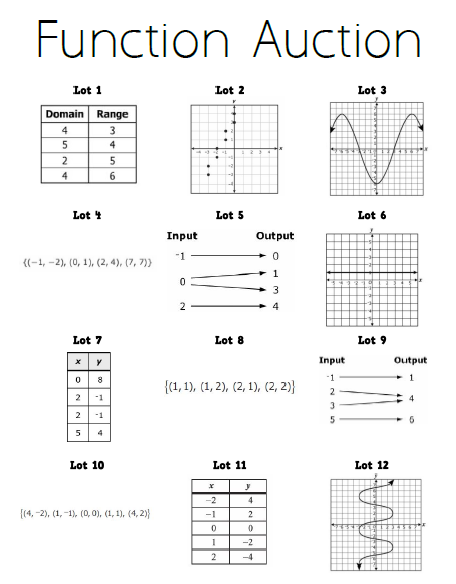
I also made a version with boxes around each lot.
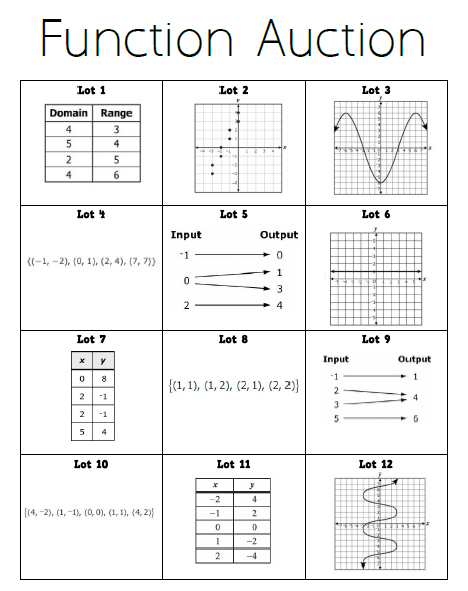
What Other Teachers are Saying About Function Auction
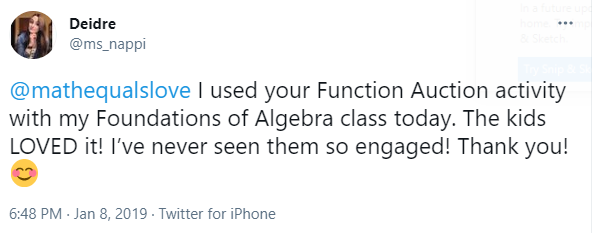
Function or Not a Function Worksheet
If I haven’t sold you on the idea of the function auction, I made the function auction catalog into a worksheet.
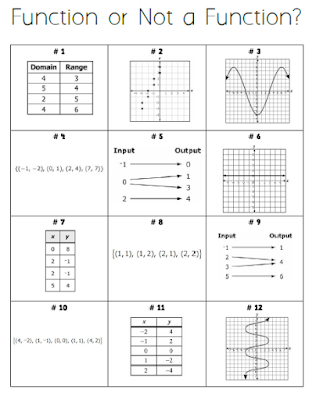
Files for Function Auction Activity
Click here to SAVE the file to your device.
Function Auction (PDF)
7508 saves – 346.65 KB
For the editable Publisher file, you’ll need these free fonts: HVD Comic Serif Pro and Aaargh. The PDF file will preserve the fonts and formatting.

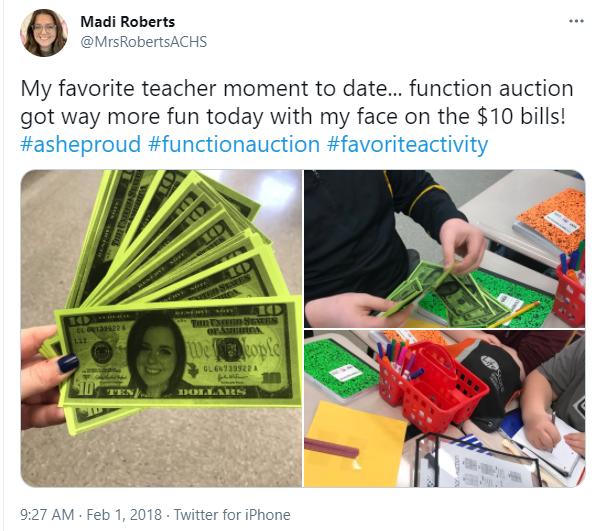
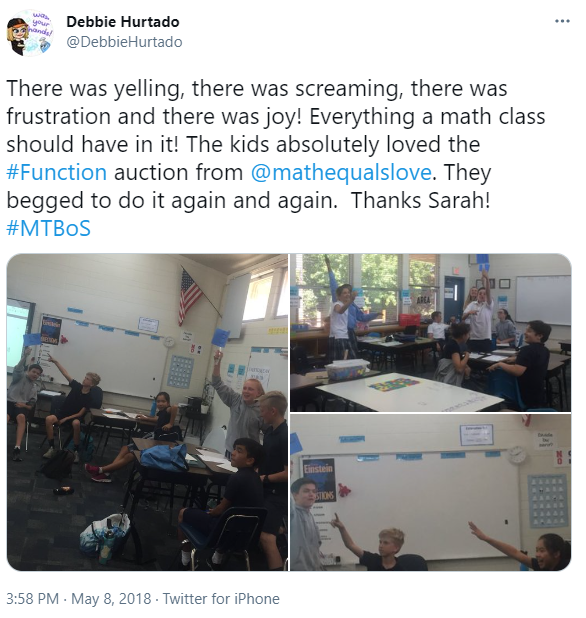
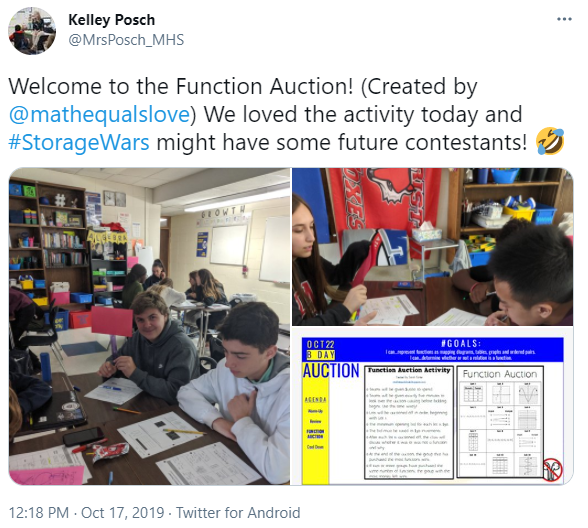
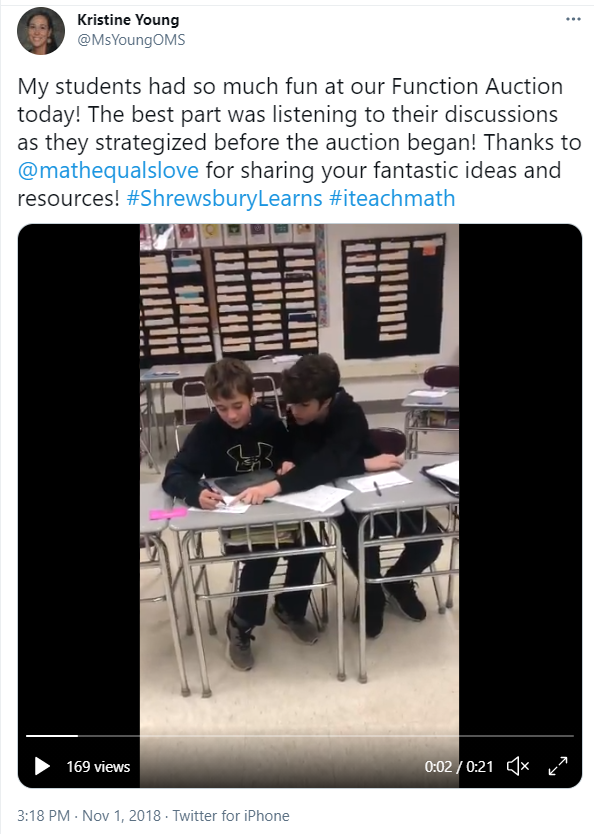
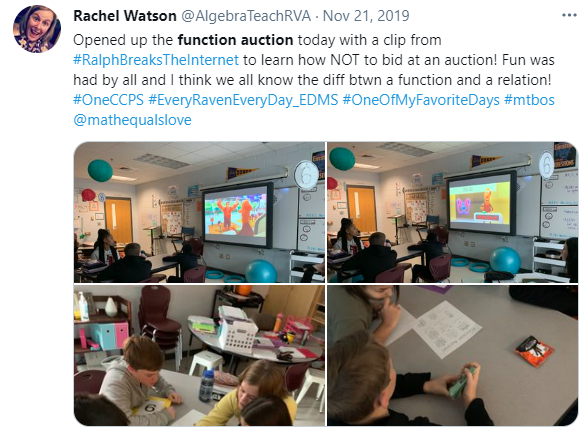
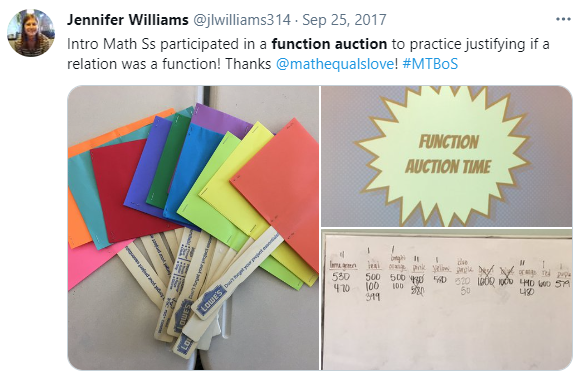
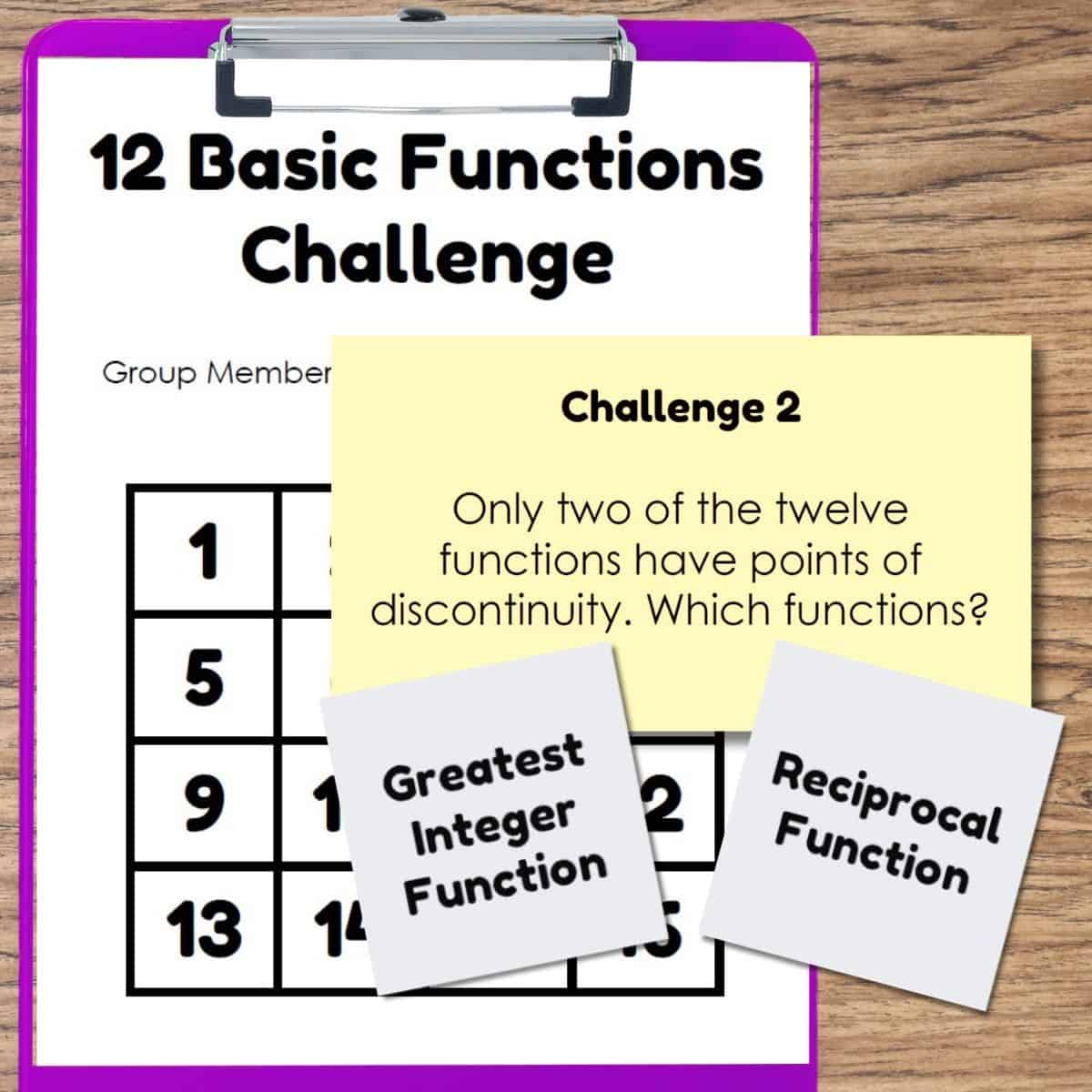
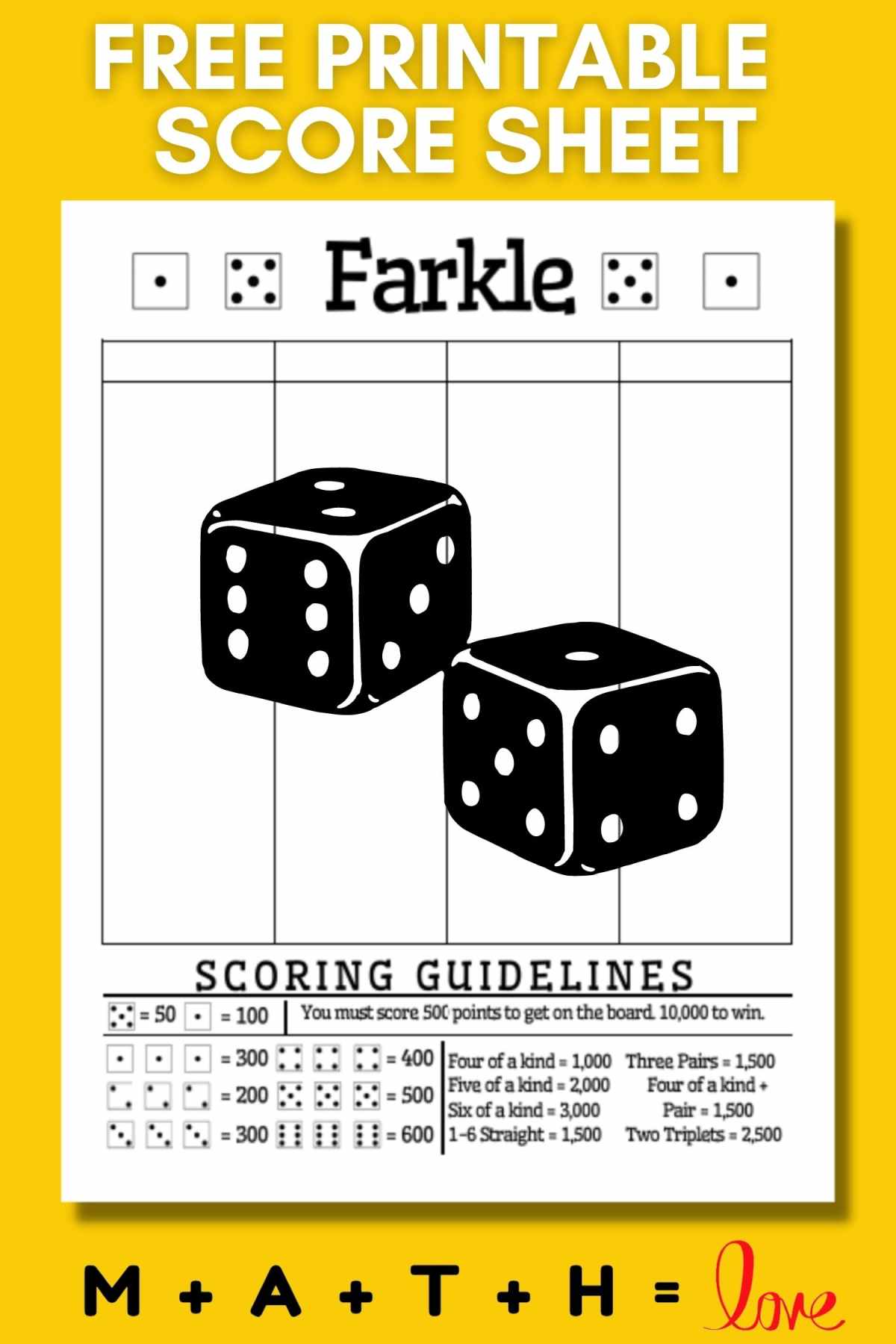


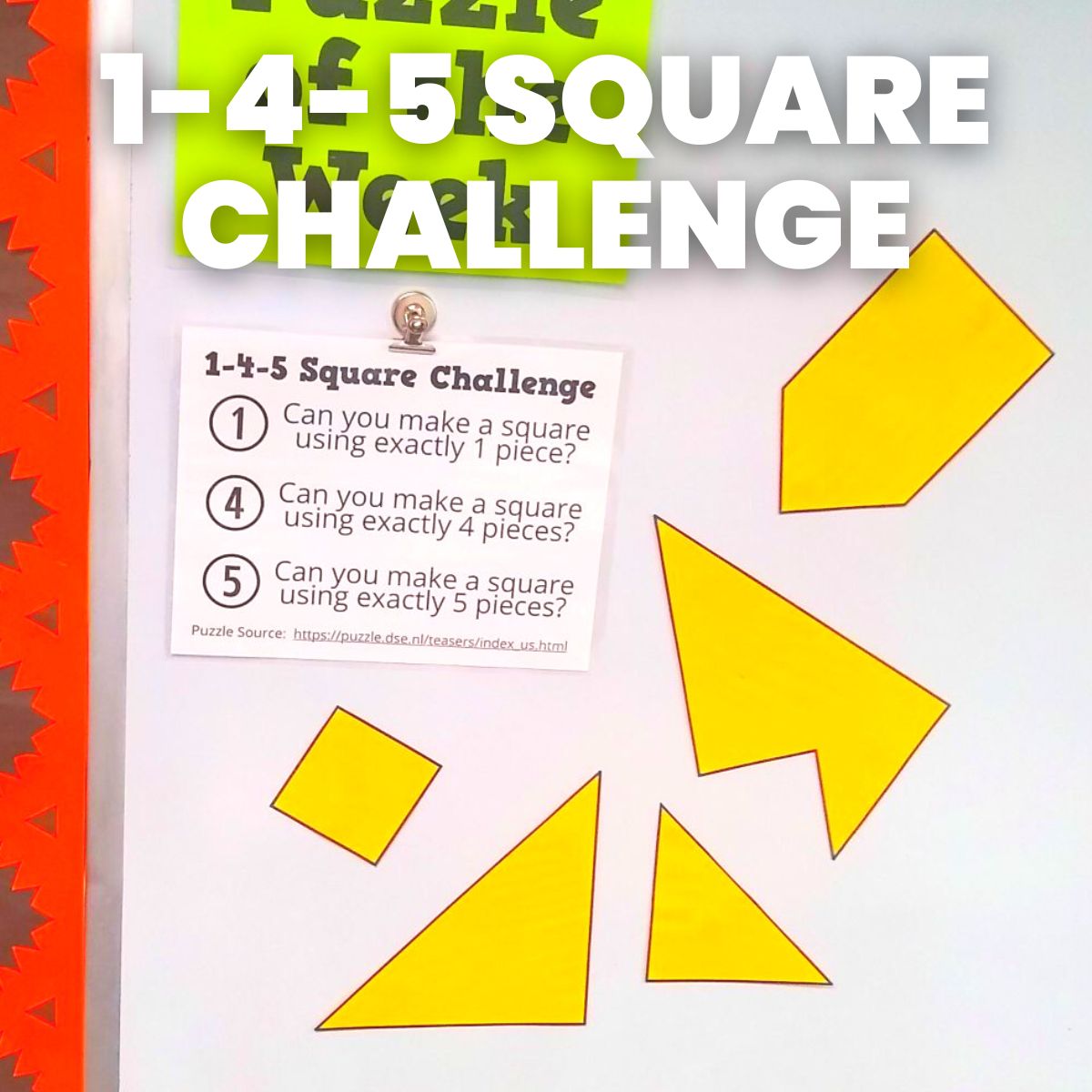

As a former economist, who studied auctions & game theory, I am loving this idea!
Thanks!
This sounds like a fun way to practice. My students are always perplexed by a vertical line – some students don't see that as failing the vertical line test, but it's a good time to remind them that line have infinite points. Thanks for sharing ?
You're welcome!
I used your idea this year for my pre-algebra 8th graders and they LOVED it!! Totally doing it again this year 🙂
Glad to hear it went well!
Thank you, Sarah! I used this today and my class loved it! SO much fun and great to see them discussing each "lot" with their team. Thank you for always being so generous and sharing your great ideas and activities with so many! ~Tracy
YAY!!!
I am totally using this in the fall!
– Elizabeth (@cheesemonkeysf)
Thanks, Elizabeth!
I've been waiting to use this for a year and I'm ready this week. How many examples did you do before you did the auction? Did you already talk about the definition and vertical line test before you did this? About how much time do you think this activity took? I'm switchign from block to regular schedule classes and timing is driving me nuts 🙂
I and my students owe hours of math joy and inspiration to you! Love the activity.
Do you ask if they are "functions of x, or a specified input?" Lot 12 is a function of t: f(t)=(sin(t),t). I always got confused in high school when we got to paremetric equations because we were seeing functions that dont pass the vertical line test. So I specify to my Alg 1 Ss "function of x".
Thanks again for all of your amazing posts!
Sean
I've never specified that before. Now I know to be more careful!
I want to make sure I understand this game correctly because conceptually I may want to use this for a geometry class. Part 1 is the auction, each team bids on one or more of the 12 items. At the end of the bidding the person or team that has purchased the most Lots wins. Then there is the discussion about whether they are functions or not which is a separate issue and is not connected to the answers for the functions. I just want to make sure I have this correct. Or, do you do the auction and then as you discuss the answers if a team gets it wrong they lose their lot so at the end of the discussion people who have answered the questions correctly keep their lots and from there you determine a winner.
I have a similar question. Do you give the students a "preview catalog" so they see all the lots at once or do you show each lot one at a time?
Thinking this will work well for Complementary and Supplementary angles! Also wished I had thought of it for right triangles…ah, next year.
I used this for my 8th grade students today and they absolutely loved it!! Thank you for the great idea!
I just came across this activity. We just covered functions in our class but I might hold on to this for next time. I was hoping I could get some clarification on how you run it. I imagine the idea is not to tell them the definition of function ahead of time. So my question would be, do you wait until the end to tell the groups which ones are functions or do you tell them after each lot to inform future bids? I can see it working both ways but just wondering what you’ve done. Thanks!
When I did this activity with my students, I provided them the definition of a function, but I did not explain it or work any examples. I told them that their job was to learn to apply the definition as we went through the activity. After each relation was “sold,” we went over it as a class and practiced applying the definition of the function to that relation. This way, they could make changes to their bidding strategy throughout the game.
Hope this helps! You can use this idea with many different topics. I have also created a Linear Auction in the past where students had to determine if relationships were linear. Other teachers online have used the auction structure to practice other topics as well.
Hello!
First of all, I am a middle school teacher and a longtime reader of your blog. Thank you so much for making your lessons and resources available to download for free!
I just tried the Function Auction and the Linear Auction for the first time this week and my students loved them! The second time around, I changed up the scoring system to make things more interesting. I allowed teams to buy non-linear functions and give them to other teams. We then calculated the score with the formula: (number of linear functions)x(amount of money left)/(number of non-linear functions +1).
My students really got into it and this way we had more to discuss when the non-linear functions were up for bidding.
I LOVE this twist! Thanks for sharing!
Hi! I love this idea and I have two question 🙂
1) During the initial 5 minutes of strategizing, what are the students usually discussing/strategizing? Since the goal is to buy as many lots as possible, are they generally talking about how to divide up the money to purchase each one? What else have you noticed that they talk about?
2) I would love to use this activity/idea for other secondary math topics. For example, solving a quadratic equation or factoring. How do you think this can be applied?
Mainly, they are discussing which lots they think are functions or not functions. Once they have discussed this, they sometimes shift to debating how much they should bid on individual lots or what their overall team strategy is.
I have done a Solving Equations Auction in the past where they had to bid on problems that were solved correctly. That might be a way to set up an auction for solving quadratics. Here’s a link to read more: https://mathequalslove.net/solving-equations-auction-review-game/